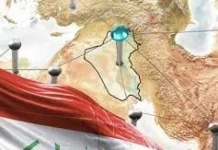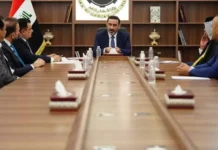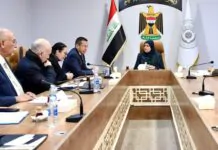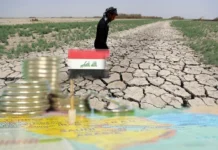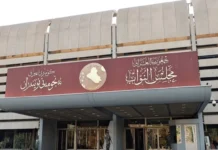Tishwash: Pressure on the central bank to change the exchange rate constitutes interference with its independence.
Samir Al-Nassiri
After the announcement of the final election results, and for the political and self-serving interests of some influential figures, speculators, and traders who deal in illegal trade through direct transfers outside the controls of the Central Bank, official border crossings, and the new instructions for prior customs registration starting from 12/1/2025, which ensure control over the government’s customs revenues.
About a week ago, media pressure began, directed by some specialists, non-specialists, and self-proclaimed analysts who frequently appear on media channels with vested interests and on social media, with the aim of disrupting the Iraqi market, which has remained stable throughout 2025 due to the wise monetary policies and efforts made by the Central Bank, which maintained the general price level and kept the inflation rate below 1%, controlled the money supply, and built sufficient foreign reserves to cover the local currency in circulation and cover imports.
He is currently implementing an ambitious project for a comprehensive and radical reform of the banking sector. He receives continuous praise from the World Bank, the International Monetary Fund, and the US Treasury for the steps he has taken in implementing monetary policy over the past three years.
Since December 19, 2020, when the exchange rate was adjusted by the Central Bank under pressure from the previous government, and up to the present time, the exchange rate of the dinar has continued to fluctuate up and down in the parallel market, even after it was adjusted again in 2023. Due to the Central Bank’s measures mentioned above, relative stability has been achieved despite all the internal and external challenges, and all the speculators’ plans to weaken the purchasing power of the Iraqi dinar have failed.
We must also not forget, clearly and precisely, that there is an organized lobby working against achieving monetary stability, led and implemented by multiple entities linked to speculators and corrupt individuals who have a special agenda to weaken and harm the national economy by fabricating news and statements, spreading rumors and flawed and paid economic analyses, and turning them from reassuring news for the market and citizens into news that confuses the market and creates panic among citizens. This is what is actually happening now, which requires clarification here, as it has been happening for about ten years.
Particularly after the financial and security shocks of mid-2014, a culture of reliance on the central bank to confront economic and financial crises and challenges became entrenched. This is done by using its monetary policy tools and mechanisms to overcome the government’s liquidity shortage and its inability to pay salaries on time, as well as the failure of fiscal policy by relying on foreign currency reserves. These reserves are not, in reality, the government’s reserves, but rather the central bank’s reserves, used to control the stability of the exchange rate, according to the target, and to address the balance of payments deficit.
The central bank has been burdened with the problems of other stakeholders, which is not its primary role. It is not responsible for the shortfall in non-oil revenues, the balance of payments deficit, the trade deficit, or the fluctuations in global oil prices. Therefore, foreign currency reserves have risen and fallen due to these flawed policies, which are not based on a clear and defined economic strategy or methodology.
Therefore, the return of stability to the exchange rate to its targeted and balanced rates will be achieved with the support of the concerned authorities in the government by activating other productive sectors, reforming the financial and banking sector, drawing up clear financial policies in coordination with monetary policy and its currently adopted applications and tools, and overcoming the challenges of achieving economic stability, which means achieving stability in the financial and monetary system.
This is not only the duty of the Central Bank alone, but it is a fundamental duty of fiscal policy and the government’s approach to managing the economy, activating sources of national income other than oil, supporting, protecting and encouraging local production, generalizing the activation of dealing in the Iraqi dinar in all internal cash trading activities, expanding the use of electronic payment methods and enhancing digital transformation.
In particular, it must be emphasized here clearly that all the pressures currently being exerted on the Central Bank to change the exchange rate are not a solution to address the liquidity shortage, but rather an interference in its independence and an abolition of its role and responsibility in its tasks and objectives as stated in its Law No. 56 of 2004, which is in force link
************
Tishwash: Mark Savaya: Iraq needs significant reforms
US Special Envoy to Iraq, Mark Savaya, affirmed that the United States has always supported legitimate security institutions in Iraq.
Savaya said in a post on the X platform: “Iraq has made tangible progress, from joint efforts to defeat ISIS, to countering harmful influences and promoting regional stability.”
However, according to the US special envoy, “significant reforms are still needed.”
He added: “American companies, which have provided billions of dollars in equipment and top-notch support, remain key partners in strengthening Iraq’s security and sovereignty.”
Mark Savaya @Mark_Savaya
·The United States has long supported Iraq’s legitimate security institutions. From joint efforts to defeat ISIS to countering malign influence and strengthening regional stability, real progress has been made. Still, essential reforms are needed.
Last Friday, the US Special Envoy to Iraq, Mark Savaya, announced his desire to visit Iraq soon and meet with its top leaders.
Savaya said in a post on the X platform: “Iraq has made remarkable progress over the past three years, and we hope that this progress will continue in the coming months.”
He added: We are closely monitoring the process of forming the new government.
The US president’s envoy stressed that the United States “will not accept and will not allow foreign interference in the formation of the next Iraqi government.” link
**************
Tishwash: Central Bank of Iraq on Liquidity: The Issue is Financial, Not Monetary
The Central Bank of Iraq announced on Tuesday a plan to increase Iraq’s gold reserves, indicating that the issue of liquidity is financial, not monetary.
According to the official news agency, Alaa al-Fahd, a member of the bank’s media office, stated that “Iraq ranks sixth in the Arab world in gold reserves, according to the latest statistics.”
He emphasized that “the gold reserve is at a good and well-maintained level, exceeding 160 tons, and the Central Bank is working to increase it as much as possible.”
He added that “the Central Bank is also striving to increase the reserve portfolio by maintaining its value and diversifying its holdings, as part of the monetary policy adopted by the Central Bank.” He pointed out that “according to Law No. 56 of 2004, the bank is responsible for monetary policy, price stability, the exchange rate, and inflation rates, and that these indicators are very good at the present time, as is the financing of foreign trade.”
Regarding the issue of liquidity, Al-Fahad emphasized that “liquidity is a financial matter, not a monetary one, and it is linked to market activity, investments, government spending, and the budget.” He pointed out that “liquidity is the responsibility of the Ministry of Finance, not the Central Bank.”
He explained that “the Central Bank’s objective is to maintain the value of the Iraqi dinar, control inflation, and work internationally to implement financial and banking reforms that contribute to monetary stability.” He further clarified that “the Central Bank has worked in the past to strengthen and diversify reserves.
This is part of the Central Bank’s policy to avoid relying solely on US dollars and instead diversify the reserve currency basket to include the Chinese yuan, the Turkish lira, and the Emirati dirham, in order to unify the country’s foreign trade. Additionally, increasing gold reserves plays a significant role in maintaining the size and value of these investments.”
He stressed that “preserving the reserve is achieved through investing it so that it does not lose its real value, and this is what the Central Bank is working on according to a well-thought-out policy and modern investment aimed at preserving and increasing the value of these reserves,” noting that “there is stability at the general level of prices and inflation rates, and the Central Bank’s policy is to maintain the reserve ratio and finance foreign trade.” link

